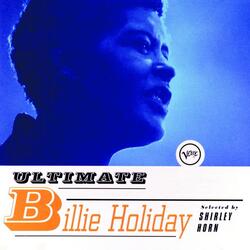The song “Strange Fruit” was first written and performed in 1930. It was most famously sung by jazz singer Billie Holiday, but was written by Jewish American Abel Meeropol(under pseudonym Lewis Allan).
“Strange Fruit” Lyrics:
Verse 1: Southern trees bear a strange fruit
Blood on the leaves and blood at the root
Black bodies swinging in the Southern breeze
Strange fruit hanging from the poplar trees
V2: Pastoral scene of the gallant south
The bulging eyes and the twisted mouth
Scent of magnolias, sweet and fresh
Then the sudden smell of burning flesh
V3: Here is a fruit for the crows to pluck
For the rain to gather, for the wind to suck
For the sun to rot, for the tree to drop
Here is a strange and bitter crop
Recording of Billie Holiday Singing “Strange Fruit”: https://search.alexanderstreet.com/view/work/bibliographic_entity%7Crecorded_cd%7C679895 1
“Strange Fruit” is well known because of its accurately grotesque description of the aftermath of a lynching. Meeropol’s particular comparison to fruit is engaging because fruit usually symbolizes new life, but here he uses it to describe death. The “blood at the root” feeds the tree in the same way that hate feeds a horrifying American tradition. The next two verses become a more literal description compared to the metaphor of the first verse. The song puts even more emphasis on the lyrics by consisting of just voice with a soft piano accompaniment. Many of Holiday’s other songs include saxophones, brass, piano, and sometimes a rhythm section, making the instrumentation of “Strange Fruit” stand out. The instrumentation as well as Holiday’s musical decisions to get louder and more forceful as the song goes on displays a raw emotion to drive home the jarring message. The swing feel creates a lack of specific down beat. This makes the rhythm more conversational as though she is recounting a personal experience making the story all the more horrendous and inhuman.
Columbia Records and radio stations did not want to promote or play “Strange Fruit” because of its controversy and dark theme. The song was especially controversial because it was released at the same time as the Anti-Lynching movement that called for making lynching a federal offence. The members of the movement sent the lyrics of “Strange Fruit” to every congress member at the time and “Strange Fruit” became the unofficial song of the movement. Even Holiday was reluctant to perform it in fear of backlash and maintaining her career. The song was first performed by Holiday at “Cafe Society” which was one of the first integrated clubs in New York City. The club was also known for combining European cabaret traditions and Afro-American jazz clubs.

https://search.alexanderstreet.com/view/work/bibliographic_entity%7Crecorded_cd%7C679895
In 1940(ten years after the song’s release) Mooropol was questioned by the New York States “Rapp-Coudert Committee” who were investigating communism in schools. In 1943, Mooropol wrote “House I Live In” which served as a patriotic song discussing racial harmony although this may not have been Mooropol’s intention. “House I Live In” was in a short film starring Frank Sinatra and the producers took out a line that said: “the house I live in, my neighbors white and black”. Mooropol was furious. In both songs by Able Mooropol, the media filtered what they deemed successful and what they thought a majority white audience would want to hear. Another example of this would be in 1950 when Josh White was called before the House Un-American Activities Committee for his recording of “Strange Fruit” where he read the lyrics of the song as a part of his testimony. Unlike Holiday’s, White’s career never recovered. 2
Billie Holiday and “Strange Fruit” became so influential that Hulu produced a film called “The United States vs. Billie Holiday” in 2021. The movie describes Holiday’s life and career as well as the FBI’s involvement in Holiday performing “Strange Fruit”. It also implies that the FBI had influence on the overdose that led to Billie Holiday’s death. Despite Holiday’s, Meeropol’s, White’s and the Anti-lynching movement’s efforts, there still hasn’t been any law passed to outlaw lynching as a hate crime.
